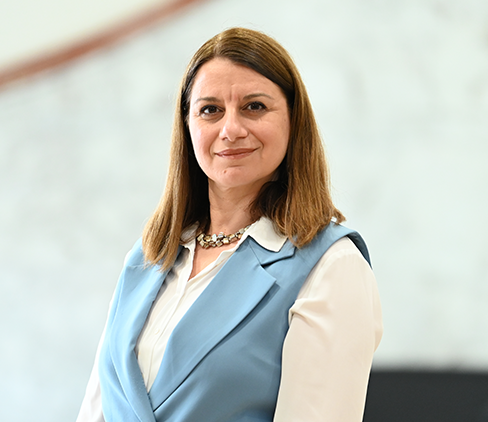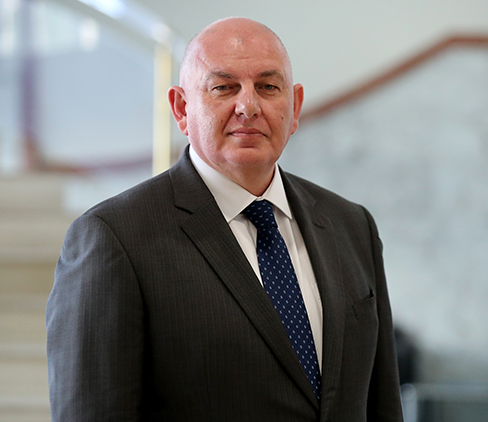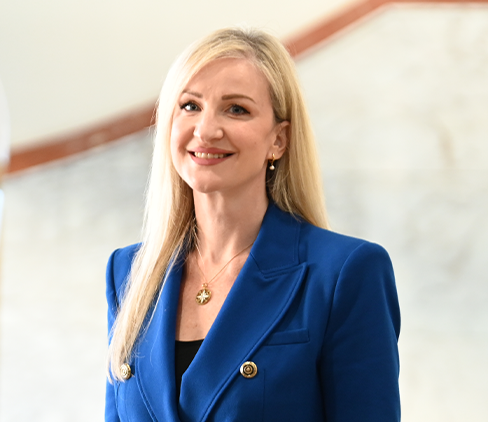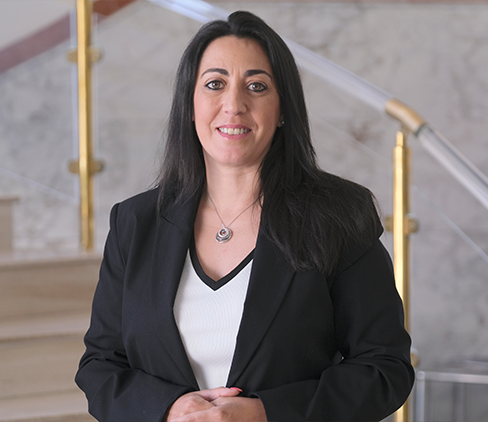MFSA Functions
Supervision Directorate
Banking Supervision
Banking Supervision is responsible for the oversight of licensed banking activities in Malta This oversight includes off-site and on-site examinations of licensed institutions applying a risk-based approach. The ultimate objective is to ensure that these licensed institutions comply with all regulations and licence conditions, whilst having the necessary corporate governance and control structures in place.
Supervision of both Significant Institutions, which is carried out together with the European Central Banks through the Single Supervisory Mechanism, and that of Less Significant Institutions through the SREP procedures, is executed by the banking Supervision team.
Banking Supervision is also responsible for policy advice and development both within the MFSA and to external stakeholders, to consistently and effectively apply local legislation and transpose EU legislation and guidelines issued by the European Banking Authority.
Catherine Galea is Head of Banking Supervision within the Authority.

Head, Banking Supervision
Catherine Galea
Capital Markets Supervision
The Capital Markets Supervision function oversees financial markets to ensure investor protection and orderly markets. This is achieved through various policy and supervisory work done at the stages of primary market, secondary market and post-trading.
The Capital Markets team processes applications for admissibility to listing on regulated markets in Malta and grants approvals of prospectuses in terms of the Prospectus Regulation. The authorisation of trading venues, central securities depositories and crowdfunding platforms falls under the remit of the function, as is their supervision. The team is also responsible for the supervision of the continuing obligations of companies having securities listed on regulated markets in Malta. Additionally, it supervises financial and non-financial entities falling under the scope of EMIR and SFTR, as well as administrators, contributors and users of benchmarks in terms of the Benchmarks Regulation. Supervision of markets is also carried out to identify any market abuse. Moreover, the function is responsible for the data quality assurance of submissions made under EMIR, SFTR, MiFIR and CSDR, and the oversight of activities in terms of the Securitisation Act and the Securitisation Regulation. Capital Markets Supervision is also actively involved in various other initiatives such as the DLT MTF Pilot Regime.
Capital Markets Supervision is led by Lorraine Vella.

Head, Capital Markets Supervision
Lorraine Vella
Company Service Providers Supervision
This function is responsible for the supervision of company service providers, who are entities or individuals providing corporate services by way of business, including formation of companies, directorship/company secretary services and the provision of registered office, business or correspondence address for businesses.
The function is entrusted with the authorisation and supervision of company services providers with the purpose of monitor these entities and their level of compliance with the applicable legislative and regulatory framework. A risk-based approach to supervision is adopted to ensure an appropriate degree of protection for the clients of persons carrying out such regulated activity, as well as the reputation of Malta’s financial system in view of the gatekeeper role played by such service providers.
The function is also responsible for identifying areas of enhancement for the regulatory framework. In this regard the team closely collaborates with the different stakeholders including other regulatory bodies and industry representatives.
Alison Cortis is the Head of CSPs Supervision at MFSA.

Head, Company Service Providers Supervision
Alison Cortis
Conduct Supervision
The Conduct Supervision function oversees the way in which firms, namely those providing services in the areas of banking, insurance and investments, design their products and services as well as the manner in which these same firms manage their relationship with consumers.
The function ensures that consumers of financial services are treated fairly, honestly and professionally by regulated entities. The ultimate objectives of this function is to set up a regulatory framework that secures appropriate consumer protection in financial services.
The function also enacts a pre-emptive supervisory regime which addresses potential or emerging risks for financial services consumers, together with an operational regime to strengthen the responsibilities of regulated persons in treating customers fairly.
The Conduct Supervision function is also responsible for consumer awareness and education. Sarah Pulis is the Head of Conduct Supervision at MFSA.

Head, Conduct Supervision
Sarah Pulis
Financial Crime Compliance
Financial Crime Compliance is a dedicated team established to strengthen the MFSA’s role in preventing the use and involvement of authorised persons in money laundering and financing of terrorism, sanctions evasion, tax evasion and other types of financial crime. The function is entrusted with the supervision of the Authority’s licence-holders to verify that they comply with AML/CFT legislation and procedures, and monitors international sanctions and other restrictive measures while providing regulated entities with relevant information, guidance and outreach. The function carries out AML/CFT compliance inspections on behalf of the Financial Intelligence Analysis Unit, and also provides its recommendations from an anti-financial crime compliance perspective to the Authority’s prudential and conduct supervisory functions when these carry out their own supervisory engagements.
The function is also involved in the Authority’s authorisation process to ensure that applicants seeking licensing, or existing licence-holders undertaking a change in their activities or ownership, have legitimate business models and fall within the Authority’s risk appetite and that they have the proper anti-financial crime controls in place prior to the issuance or extension of a licence.
The function is also entrusted with receiving investigation orders and requests for information from the Financial Intelligence Analysis Unit, the Police and the Asset Recovery Bureau, and coordinating the collation and submission of information and supporting documentation from several internal functions within the Authority.
In fulfilling its remit, the Financial Crime Compliance function coordinates closely with the prudential and conduct functions of the MFSA and collaborates and exchanges information with the Financial Intelligence Analysis Unit, the National Coordinating Committee for AML/CFT, the Sanctions Monitoring Board and other national and international stakeholders.
Matthew Scicluna heads the Financial Crime Compliance function within the Authority.

Head, Financial Crime Compliance
Matthew Scicluna
FinTech Supervision
The FinTech Supervision function is responsible for the supervision of the Virtual Financial Asset sector as well as the supervision of non-bank financial institutions in Malta. The function also provides cross-sectoral expertise on digital finance and FinTech-related policy and supervisory initiatives.
The function is responsible for the oversight of one of the first frameworks specifically developed to provide legal certainty to Virtual Financial Assets falling outside the scope of traditional financial services legislation. The Framework provides for the regulatory and supervisory requirements relating to VFA Agents, Whitepapers, and VFA Service Providers whilst contributing to investor protection, market integrity and financial stability. As part of its oversight, the function is responsible for receiving applications, granting of authorisations and supervising licence holders within this regulatory framework. Likewise, the function is also responsible for the authorisation and supervision of non-bank financial institutions (payment institutions and e-money institutions).
The FinTech Supervision team is also entrusted with the development and implementation of the MFSA FinTech Strategy and Regulatory Sandbox as well as the coordination of the implementation of the Digital Finance Package within the MFSA. Through engagement and collaboration with the other supervisory functions within the Authority, this function seeks to monitor, understand, and assess the impact of the use of innovative technology and digital transformation occurring within the finance services landscape, nationally and abroad, and where necessary, develop the appropriate policies and instruments to mitigate any gaps which may arise.
Camille Pepos heads the FinTech Supervision function within the Authority.

Head, FinTech Supervision
Camille Pepos
Insurance and Pensions Supervision
Insurance and Pensions Supervision is responsible for the prudential oversight of authorised re-insurance undertakings, insurance intermediaries, retirement schemes, retirement funds and retirement plan service providers, including business carried out in an EU Member State or EEA State, either through establishment or under the freedom to provide services.
Supervision is carried out on a prospective and risk-based approach, comprising the continuous verification of the proper operation of the business of insurance and its compliance with insurance legislation, through a combination of off-site and on-site supervision.
Through its supervisory work, the team aims to protect policyholders and beneficiaries in accordance with the regulatory obligations namely emanating from the Insurance Business Act, the Insurance Distribution Act and the Retirement Pensions Act, whilst safeguarding the stability of the financial system.
Ray Schembri heads the Insurance and Pensions Supervision team.

Head, Insurance and Pensions Supervision
Ray Schembri
Investment Services Supervision
The Investment Services Supervision function is responsible for authorising and supervising investment firms, fund managers, collective investment schemes, recognised private collective investment schemes, registered tied agents, and recognised fund administrators.
Through its supervision, the function assesses compliance with prudential requirements emanating from European Directives and local legislation and regulations, as well as the adequacy of systems and controls, governance arrangements, risk management and risk mitigation, within licensed entities falling within its remit. The function carries out supervisory interactions, collects regulatory data, and makes use of desk-based supervisory tools and data intelligence to achieve its objectives.
To support its supervisory work, the function actively participates in European Supervisory Authorities’ committees and working groups. It also dedicates resources to the transposition and implementation of European Directives and Regulations in the remit of the function, to ensure integration in the Maltese legal and regulatory framework and develops policy intended to supplement this framework.
Ian Meli is Head of Investment Services Supervision within the Authority.

Head, Investment Services Supervision
Ian Meli
Supervisory ICT Risk & Cybersecurity
The Supervisory ICT Risk and Cybersecurity function was established in 2020 to focus on one of the Authority’s outlined key strategic priorities – Cybersecurity and Resilience. It is a cross-sectoral supervisory function within the MFSA’s Supervision directorate, providing expert advice to, and working closely with, all the other supervisory functions.
The function is responsible for the supervision of licence holders in the areas of ICT Risk and Cybersecurity and the management of risks associated with ICT outsourcing, collectively the area of Digital Operational Resilience. It participates in various groups at local and international levels, and develops policies and guidelines for the industry.
As part of its remit, the function is also the contact point for major ICT-related incident reporting by licence holders.
Supervisory ICT Risk and Cybersecurity at the MFSA is led by Alan Decelis.

Head, Supervisory ICT Risk and Cybersecurity
Alan Decelis
Trustees Supervision
The Trustees Supervision Function is responsible for the authorisation and supervision of trustees and other fiduciary service providers.
The function’s supervisory work in relation to authorised trustees and other fiduciaries, including administrators of private foundations is aimed at monitoring their level of compliance with the applicable legislative framework so as to ensure an appropriate degree of protection for the clients of persons carrying on such regulated activity. The function’s supervisory work vis-a-vis trustees and other fiduciary service providers is also crucial due to the gatekeeper role which they are deemed to hold within the financial system, and therefore, the heightened risks which these sectors may be exposed to.
The function adopts a risk-based approach to its supervisory work, through the collection and assessment of regulatory data, which in turn informs the depth and frequency of supervision conducted. Moreover, the function adopts a variety of tools and mechanisms with respect to supervision, comprising supervisory interactions, which may take the form of either a comprehensive top-down review of all the systems and procedures of the authorised person, or a deep-dive into a specific area of focus, as well as desktop reviews and thematic assessments, amongst others.
The Function at the MFSA is led by Petra Camilleri.

Head, Trustees Supervision
Petra Camilleri
Supervisory Quality Assurance
Supervisory Quality Assurance is a newly-set up function within the MFSA, enabling the Authority to put more focus in this area, in line with European Central Bank (ECB) recommendations.
The main role of the function centres around the review of supervisory approaches in order to safeguard the consistency and quality of supervisory activities, while acting as a key contributor to the development of homogeneity across supervisory functions and in line with European Supervisory Authority standards.
From a quality assurance perspective, it ensures the proper use and continuous enhancement of the holistic supervisory framework and promotes supervisory standards in line with international best practices and the MFSA’s vision. As part of its ongoing work, the function is also responsible for identifying emerging risks and deficiencies in the internal supervisory processes and offer recommendations to address shortcomings.
Enforcement Directorate
Due Diligence
The Due Diligence function is responsible for conducting checks on persons being proposed to take on approved positions within entities licensed by the MFSA. The function’s remit is to focus on probity, intelligence gathering, due-diligence and ongoing monitoring of fit and properness of individuals and their involvements while operating in the financial services sector. To this effect, the Authority is investing in more technology, information systems and process enhancements, along with human resources and skillsets, to increase the effectiveness and robustness of Due Diligence.
Necessitating close collaboration with local and international law enforcement agencies and coordination between the different supervisory and regulatory teams of the MFSA, the function is responsible for carrying out probity screenings in relation to all qualifying beneficial owners as well key functionaries within a licensed entity. The Due Diligence function is also responsible for carrying out ongoing checks on a risk-based approach, to verify that approved persons are of good repute.
The Due Diligence function at the MFSA is led by Paul Caruana.

Head, Due Diligence
Paul Caruana
Enforcement
The Enforcement function is responsible for conducting investigations and enforcing the regulatory framework vis-à-vis persons or entities supervised by the MFSA. This necessitates close collaboration with the other functions within the Authority in order to carry out its work efficiently and effectively. The Enforcement function is also responsible for investigating persons or entities, whether licensed or otherwise, who are suspected of undertaking licensable activities falling within the regulatory and supervisory functions of the MFSA, without the necessary licence or authorisation.
Upon conclusion of its investigations, the Enforcement function makes recommendations for enforcement action to be taken by the Authority. Enforcement action may include, amongst others, the imposition of administrative penalties, the suspension or cancellation of licences/authorisations, the issue of directives requiring that any person having functions in relation to the holder of a licence be prohibited from carrying out licensable activities, and the issue and publication of reprimands and warnings.
The Enforcement team also issues guidance to the public on how to detect investment scams and other market malpractices that could be detrimental to consumers of financial services, as well as notices and warnings to alert the public of the risks involved in transacting with certain entities.
Edward Grech heads the Enforcement function within the MFSA.

Head, Enforcement
Edward Grech
Strategy, Policy & Innovation Directorate
Financial Stability
The Financial Stability function contributes towards maintaining a resilient and trustworthy financial system in Malta. Our team closely monitors the financial services sector, analysing risks and vulnerabilities, utilising both quantitative and qualitative techniques. We focus on identifying and mitigating systemic risks that could arise in or impact the financial services sector or the wider economy by assessing potential threats, considering factors like macroeconomic conditions, and structural and emerging vulnerabilities.
We monitor trends and developments, using our expertise to inform policy recommendations and regulatory measures that enhance resilience. Through collaboration with micro-prudential supervisors, policymakers and international bodies, including the European Central Bank (ECB), the European Systemic Risk Board (ESRB) and the International Monetary Fund (IMF), the team aligns with global standards and best practices and supports the MFSA’s role in safeguarding stability in the Maltese financial system and promoting sustainable economic growth.
Mirko Mallia heads the Financial Stability Function within the Authority.

Head, Financial Stability
Mirko Mallia
Strategy, Policy and Innovation
The Strategy, Policy and Innovation function is responsible for providing advice, analyses and reviews on current and prospective strategies and policies related to key priority areas in respect to the various financial services sectors. The function also proposes new areas which could potentially be delved into by the MFSA and provides insight on how related frameworks may be developed.
By virtue of a decision taken in July 2021, the SPI function has also been tasked with the setting up of a Sustainable Finance platform within the function with the aim of proposing and implementing a strategy for the integration of sustainable finance regulation across the Authority’s structures.
In formulating and proposing policies, the function seeks to ensure that the Authority is proactive in the face of new opportunities, perceived risks and changing international standards which may impact the financial services sector, whilst fostering innovation and enhancing access to financial products. The function hence contributes towards strengthening Malta’s framework for the regulation of the sector, whilst promoting and coordinating strategic thinking across all functions within the MFSA.
As part of its remit, the function is also responsible for participating in selected local, EU and international fora, including committees of the European Supervisory Authorities, which may impinge on the Authority’s strategies and policies.
The Strategy, Policy and Innovation function is led by Clare Farrugia.

Head, Strategy, Policy and Innovation
Clare Farrugia
Operations Directorate
Administration and Facilities Management
The Administration and Facilities Management Function oversees and manages the Authority’s building management services, as well as supports administration by providing oversight of the cleaning and security services. The team also manages the centralised travel desk, hospitality and transport services, and the Reception. In addition to managing all the Authority’s procurement of goods and services, its mission is to support MFSA staff by maintaining a safe and operational working environment, through regular preventive maintenance programmes and renovation/refurbishment projects.
Gordon Scicluna is the Head of Administration and Facilities Management at MFSA.

Head, Administration and Facilities Management
Gordon Scicluna
Communications
The Communications function has a pivotal role to play in supporting the MFSA’s strategic priority of engaging directly and regularly with all key stakeholders. Acting as the central point of contact, the Communications function drives the Authority’s internal and external communications, and is responsible for managing public and media relations.
As designated brand guardians, the Communications team handles the MFSA’s reputation and image on digital and offline platforms, including the Authority’s website and social media presence, as well as corporate publications. As part of its remit, the Communications function oversees the organisation of the MFSA’s events, which range from briefings, workshops and seminars for licence holders and financial services practitioners, to the MFSA’s participation at fairs and conventions, both locally and overseas.
In keeping with the Authority’s commitment to focus on increased consumer education and awareness, the Communications team devises and implements consumer education campaigns to safeguard consumers’ interests, and also handles, on a daily basis, the various queries received.
The Communications team at MFSA is led by Christine Cachia.

Head, Communications
Christine Cachia
Data Management and Business Intelligence
The Data Management and Business Intelligence (BI) function is a newly set up team within the Authority, through which the MFSA’s data will be treated as an important asset for enabling risk-based supervision. The aim of this function is to enable timely and effective decision-making across the Authority, in line with the overall business strategy.
The team is responsible for driving data governance, data quality management and integrity, as well as the data architecture across the whole organisation, whilst working closely with business stakeholders, process owners and the Technology team. As part of its remit, the function is also responsible for automating and managing data-related supervisory work flows, as well as managing a centralised data warehouse and BI analytics platform to provide ongoing insights, analyses and dashboards for end users.
The Data Management and Business Intelligence team at MFSA is led by Daniela Bagnaschi.

Head, Data Management and Business Intelligence
Daniela Bagnaschi
Finance
The Finance team is responsible for corporate finance, financial planning and control including financial operations and assurance. This includes the preparation of financial budgets and forecasts, treasury, financial planning and control, book keeping, payroll and all statutory accounting.
The team is also responsible for the collection of licence fees, payments to suppliers together with timely submission of financial information to the Ministry of Finance, Board of Governors and other Government entities.
The Finance function also liaises with the Statutory Auditors regarding the annual audit of the Authority’s Financial Statements which are drawn up annually in compliance with International Financial Reporting Standards.
Charlo Bianco heads the Finance function within the MFSA.

Head, Finance
Charlo Bianco
People and Culture
Placing employees and other stakeholders at the very heart of the Authority’s mission, the People and Culture function reflects the drive being undertaken to bring about change and organisational growth within MFSA. People and Culture provides the Authority with the human resource capabilities that are essential for the fulfilment of its mission. It attracts and retains the best possible talent while striving to ensure that the Authority becomes an employer of choice for suitably qualified and experienced professionals. It also serves the training and development needs of the employees with the Authority, supporting them in the progression of their career paths.
It is also responsible for identifying training needs in the financial services sector and for developing, creating and implementing training programmes in conjunction with the relevant professional training bodies and academic institutions. The team implements other staff related provisions, including the MFSA Ethics Framework, the MFSA Anti-Fraud Policy and Occupational Health & Safety.
All the projects and initiatives undertaken by the team, such as policy development, recruitment, training and performance management, are driven by the five MFSA values, of integrity, trustworthiness, dependability, independence and excellence.
Antoaneta Iossifova is the Head of People & Culture.

Head, People & Culture
Antoaneta Iossifova
Programme Management (PMO) and Quality Assurance
The Programme Management & Quality Assurance office is responsible for the setting up and ongoing management of a single, centralised framework, designed to ensure the implementation and delivery of key organisational projects and other change initiatives within the Authority.
Programme Management define best practice within the Authority with the aim of standardising quality assurance and change management activities, thus introducing economies of repetition in the execution of projects.
The Programme Management team is key towards ensuring the completion of projects, within budget, established timeframes and quality. Whilst providing support to key business operations and IT projects to a successful conclusion, the function seeks to create a foundation for consistent project success throughout the organisation through the development of a strong and pervasive Programme Management discipline within the organisation’s project teams.
Kevin Fitzgerald is the Head of Project Management and Quality Assurance.

Head, Programme Management and Quality Assurance
Kevin Fitzgerald
Technology
The Technology function at MFSA leverages cutting-edge technology, industry standards and methodologies to provide reliable services to the rest of the organisation and the entities interacting with the Authority through digital means. The team provides operational support to the other functions of the Authority and is responsible for managing the Authority’s resources, efficiently supporting the overall business strategy.
It is responsible for technology design, development, integration and delivery of all the information and communications infrastructure, platforms and services, and works with several technology vendors and partners. It also ensures the protection of data based on the principles of data privacy, while mitigating against cyber threats using advanced protection mechanisms.
Technology is also assigned with the responsibility of providing information security analysis to the Regulatory functions. Officials from the Technology team participate in several European committees, expert groups and industry fora.
The Technology team at MFSA is led by Reuben Vella.

Head, Technology
Reuben Vella
Legal and International Affairs Directorate
Legal & International Affairs
The Legal & International Affairs Directorate is generally responsible for legal and international affairs pertaining to the MFSA. It is composed of two functions, namely the Legal Affairs function and the EU & International Affairs function.
The Legal Affairs function provides legal advice across the organisation. It is responsible for the drafting and/or vetting of legal documents which the Authority may enter into. The Legal Affairs function is also responsible for the coordination and oversight of the legislative process falling under the administration of the MFSA, including such legislative amendments or new laws as may be required for the purposes of transposing EU Directives or implementing EU Regulations.
Moreover, the said function attends to any litigation matters and represents the Authority in any action or legal proceedings in which the MFSA is involved or has an interest. This includes the preparation and filing of judicial acts and any other legal or judicial submissions or documents for the Authority, as well as any other work necessary in preparation for court or tribunal sittings.
The EU & International Affairs function is responsible for the coordination of relations with international organisations and memoranda of understanding with other foreign regulators. The function provides advice to Government on the formulation of financial services policy, mainly relating to upcoming legislative and non-legislative proposals issued by the European Commission. The function is also actively engaged in policy dialogue, negotiations and follow up of EU institutional affairs and dossiers.
Other MFSA Functions
Internal Audit
Established through the provisions of Article 12D of the MFSA (Cap 330), the MFSA’s Internal Audit function is an independent and consulting activity designed to add value and improve the operations and control environment of the Authority. It designs its audit engagements to provide independent and objective assurances to the Board of Governors through the Audit Committee.
The Internal Audit function supports the Authority to accomplish its objectives by bringing a systematic, disciplined approach to evaluate and improve the effectiveness of the internal risk management, control, and governance processes. It keeps the Audit Committee informed on emerging trends and standards in internal auditing and prevention of fraud by providing consultancy and advice as appropriate for the better functioning of the Authority. Internal Audit further assists the MFSA to identify, analyse, respond, gather information and monitor strategic risks that could actually or potentially impact the ability of the Authority in achieving its mission and objectives.
The Internal Audit Charter defines in general terms the purpose, scope of work, accountability, responsibility and authority of the Internal Audit function with the MFSA. It establishes the position of Internal Audit, authorising access to records, personnel and physical properties relevant to the performance of an audit engagement and defines the type and scope of the internal audit activities.
The Head of Internal Audit at MFSA is Andrew Said.

Head, Internal Audit
Andrew Said
Resolution
Resolution is responsible for drafting resolution plans for banks and certain investment services firms, advising the Resolution Committee on whether an institution should go into liquidation or resolution, and the application of resolution tools as necessary. The Resolution team interacts on an on-going basis with European institutions and local Authorities to carry out its work.
In order to retain its operational independence from the supervisory function, the Act contemplates the creation of a Resolution Committee and its underlying structures. The Resolution Committee shall have all the powers assigned to it by the Resolution Authority under the MFSA Act. The Resolution functions are carried out as contemplated by the Act and as provided for by the Resolution Committee.
Furthermore, these structures administer the requirements emanating from the Bank Recovery and Resolution Directive (BRRD), Single Resolution Mechanism Regulation (SRMR), the Recovery and Resolution Regulations (RRR) and the Intergovernmental Agreement (IGA) on the transfer and mutualisation of contributions to the Single Resolution Fund.
Christian Buttigieg heads the Resolution function within the Authority.

Head, Resolution
Christian Buttigieg
Risk Management
Introduced as a separate function within the Authority in 2019, Risk Management is not only responsible for the analysis of risks but also the development of plans to mitigate such risks within the MFSA.
The Risk Management team is responsible for keeping the risk control framework under review, providing the strategic input and direction with regards to the Authority’s risk appetite, ensuring that the defined risk appetite is compliant with the requirements set out by the European Supervisory Authorities.
The Risk Management team is also responsible for ensuring that the internal processes and procedures of the MFSA comply with European Standards whilst offering recommendations on how these can be improved from a risk and quality perspective.
The Risk Management team at MFSA is led by Margherita Privitera.

Head, Risk Management
Margherita Privitera

